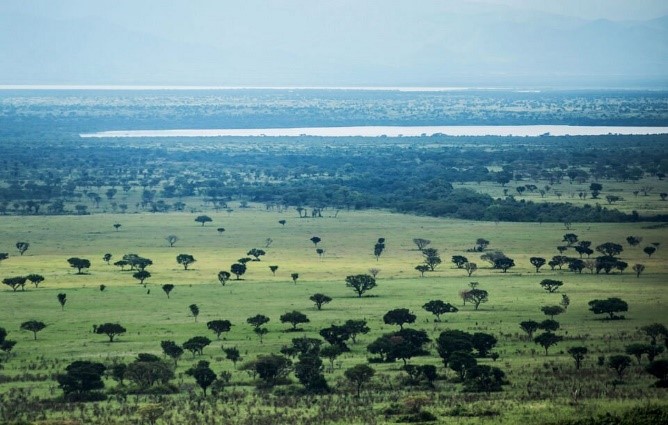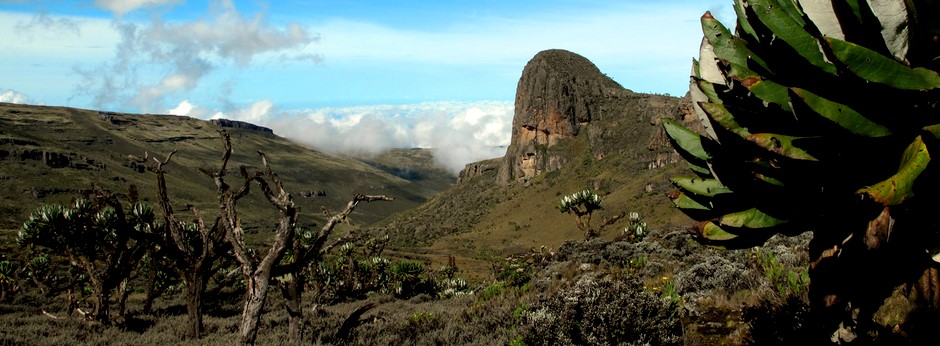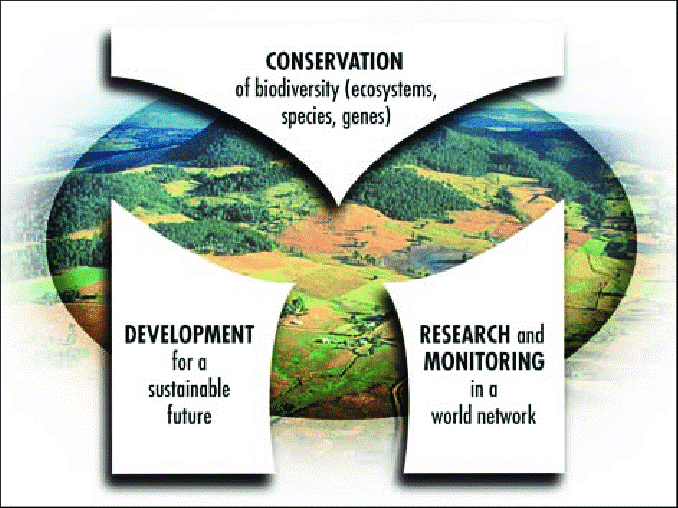03rd November 2022 marked the first International Day for Biosphere Reserves and 50th Anniversary of Man and Biosphere (MAB) Programme, we joined the rest of the world to celebrate and recognize the importance of Biosphere reserves and take the opportunity to share important information with the general public for continued support for the preservation and conservation of nature for Sustainable development.
The day was celebrated under the theme “Building a shared future for all life’ which speaks to our collective responsibility towards reconstructing, repairing and undoing what has gone wrong for us to have a better life without forgetting the future generation. It is anchored on the principles of Sustainable development in tandem with what mother earth has given us in form of the Biosphere Reserves.
Uganda has two Biosphere Reserves: Mt Elgon and Queen Elizabeth National Parks. Queen Elizabeth was designated by UNESCO as Biosphere Reserve in 1979 while Mt. Elgon was designated in 2005. There are a number of other sites proposed for nomination including Mt Moroto, Budongo Forest, Mabira, Timu Forest, Morungole, Kalinzu-Kasyoha-Kitomi, Bungoma, Sango Bay, Zoka, Kadam, Lake Mburo and Lake Victoria Basin among others.
 landscape and crate lakes in Queen Elizabeth Biosphere Reserves (© UNESCO)
landscape and crate lakes in Queen Elizabeth Biosphere Reserves (© UNESCO)
The first International Day for Biosphere Reserves (IDBRs) was commemorated at the national level by running a newspaper supplement in the new vision of 04th/11/2022 which detailed the context of Biosphere Reserves in Uganda and various interventions that UNESCO/UNATCOM has undertaken in Biosphere Reserves in Uganda, at local levels through activities and events that contribute to a better knowledge of the role and impact of biosphere reserves. Its celebration this year also marks the close of the celebrations of the 50th Anniversary of the Man and Biosphere (MAB) Programme.
The BRs were initiated under the UNESCO Programme called Man and the Biosphere Programme (MAB), an intergovernmental scientific program, launched in 1971 to establish a scientific basis for the improvement of relationships between people and their environments. MAB addresses challenges linked to scientific, environmental, societal and developmental issues in diverse ecosystems. MAB combines the natural and social sciences, economics and education to improve human livelihoods and the equitable sharing of benefits, and to safeguard natural and managed ecosystems, thus promoting innovative approaches to economic development that are socially and culturally appropriate, and environmentally sustainable. The MAB program provides a unique platform for cooperation on research and development, capacity-building and networking to share information, knowledge and experience on three interlinked issues: biodiversity loss, climate change and sustainable development. It contributes to better understanding of the environment and also promotes greater involvement of science and scientists in policy development concerning the wise use of biological diversity. The MAB Programme and the biosphere reserve model have, over the past 50 years, become an international example of sustainable territorial development and highlight UNESCO’s and the MAB’s commitment to the global biodiversity agenda and the Sustainable Development Goals.

Pictures showing the Geodiversity and Biodiversity of Mt. Elgon BR (©UNESCO )
UNESCO through the National Commission in Uganda boosts Uganda’s capacity for attainment of its Vision 2040, National Development Plans (NDPs) 3 on Programmes on Natural Resources, Environment, Climate Change, Land and Water Management; Digital Transformation; Sustainable Energy Development; Sustainable Urbanization and Housing; Human Capital Development; Community Mobilization and Mindset Change and Innovation, Technology Development and Transfer are within UNESCO’s areas of competence, the EAC Vision 2050 on sustainable, adequate, affordable, competitive, secure and reliable supply of energy, Natural Resource and Environment Management with enhanced value addition including sustainable use of natural resources ,green growth promotion/green economy for in the context of sustainable development and poverty reduction, climate change adaptation and mitigation and peace and security, the African Union Agenda 2063 aspirations of a prosperous Africa based on inclusive growth and sustainable development, a peaceful and secure Africa, an Africa with a strong cultural identity, common heritage, values and ethics, an Africa, whose development is people-driven, relying on the potential of African people, especially its women and youth, and caring for children are within UNESCO’s areas of competence and finally the Sustainable Development Goals (Agenda 2030) SDG 4, 5, 6,9, 11,13,14,15 and 16.
All Ugandans, especially those living in the BRs and various Stakeholders including the MAB National Committees are therefore urged to continue reflecting on the importance of BRs and take actions that lead to peaceful co-existence and sustainable living within the BRs.

